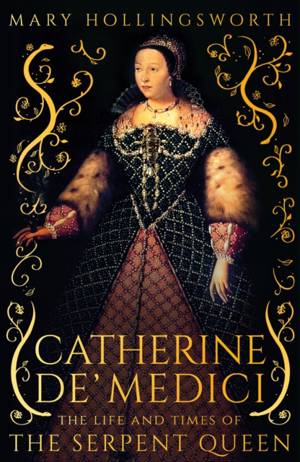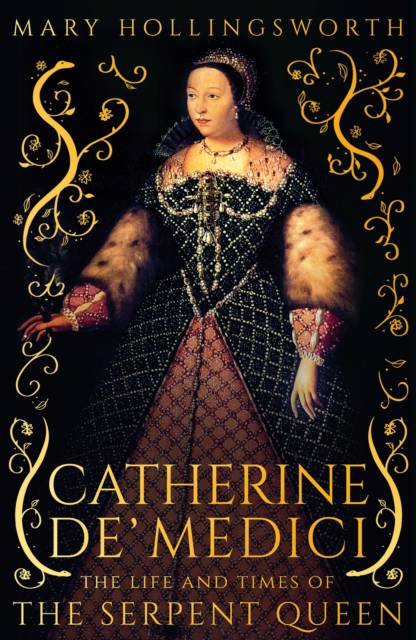
- Retrait gratuit dans votre magasin Club
- 7.000.000 titres dans notre catalogue
- Payer en toute sécurité
- Toujours un magasin près de chez vous
- Retrait gratuit dans votre magasin Club
- 7.000.000 titres dans notre catalogue
- Payer en toute sécurité
- Toujours un magasin près de chez vous
Catherine de' Medici
The Life and Times of the Serpent Queen
Mary Hollingsworth
Livre relié | Anglais
41,95 €
+ 83 points
Description
A new biography of Catherine de' Medici, the most powerful woman in sixteenth-century Europe, whose author uses neglected primary sources to recreate the life and times of a remarkable – and remarkably traduced – woman. History is rarely kind to women of power, but few have had their reputations quite so brutally shredded as Catherine de’ Medici, Italian-born queen of France and influential mother of three successive French kings during that country’s long sequence of sectarian wars in the second half of the sixteenth century. Thanks to the malign efforts of propagandists motivated by religious hatred, history tends to remember Catherine as a schemer who used witchcraft and poison to eradicate her rivals, as a spendthrift dilettante who wasted ruinous sums of money on building and embellishment of monuments and palaces, and most sinister of all, as instigator of the St Bartholomew’s Day massacre of 1572, in which thousands of innocent Protestants were slaughtered by Catholic mobs. Mary Hollingsworth delves into contemporary archives to discover deeper truths behind these persistent myths. The correspondence of diplomats and Catherine’s own letters reveal a woman who worked tirelessly to find a way for Catholics and Protestants to coexist in peace (a goal for which she continued to strive until the end of her life), who was well-informed on both literary and scientific matters, and whose patronage of the arts helped bring into being glorious châteaux and gardens, priceless work of art, and magnificent festivities combining theatre, music and ballet, which display the grandeur of the French court.
Spécifications
Parties prenantes
- Auteur(s) :
- Editeur:
Contenu
- Nombre de pages :
- 480
- Langue:
- Anglais
Caractéristiques
- EAN:
- 9781800244764
- Date de parution :
- 06-06-24
- Format:
- Livre relié
- Dimensions :
- 164 mm x 241 mm
- Poids :
- 734 g







